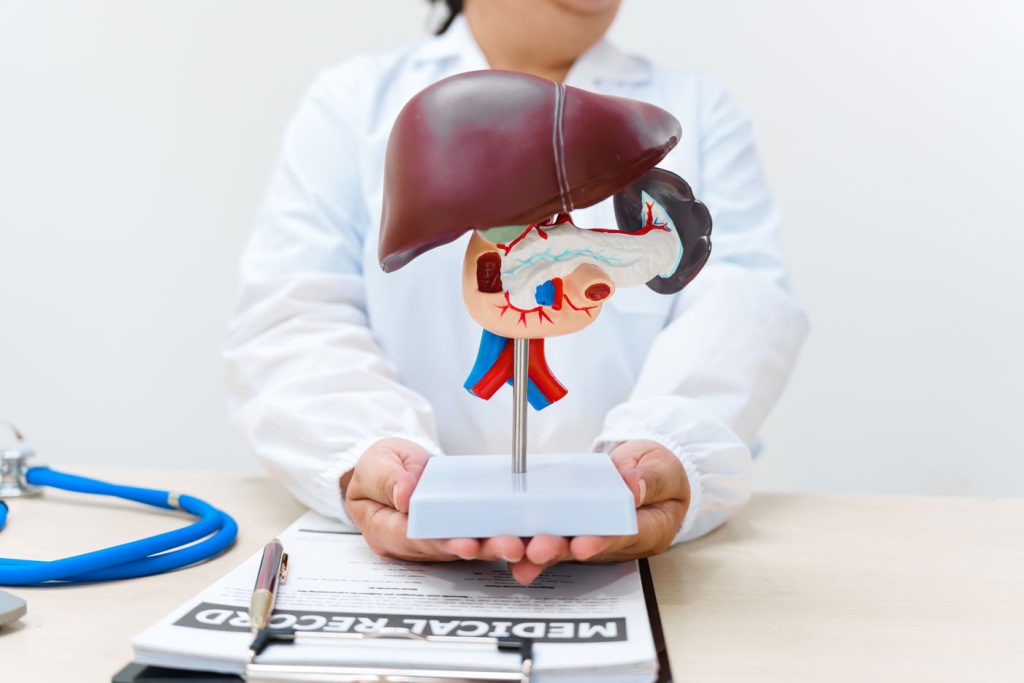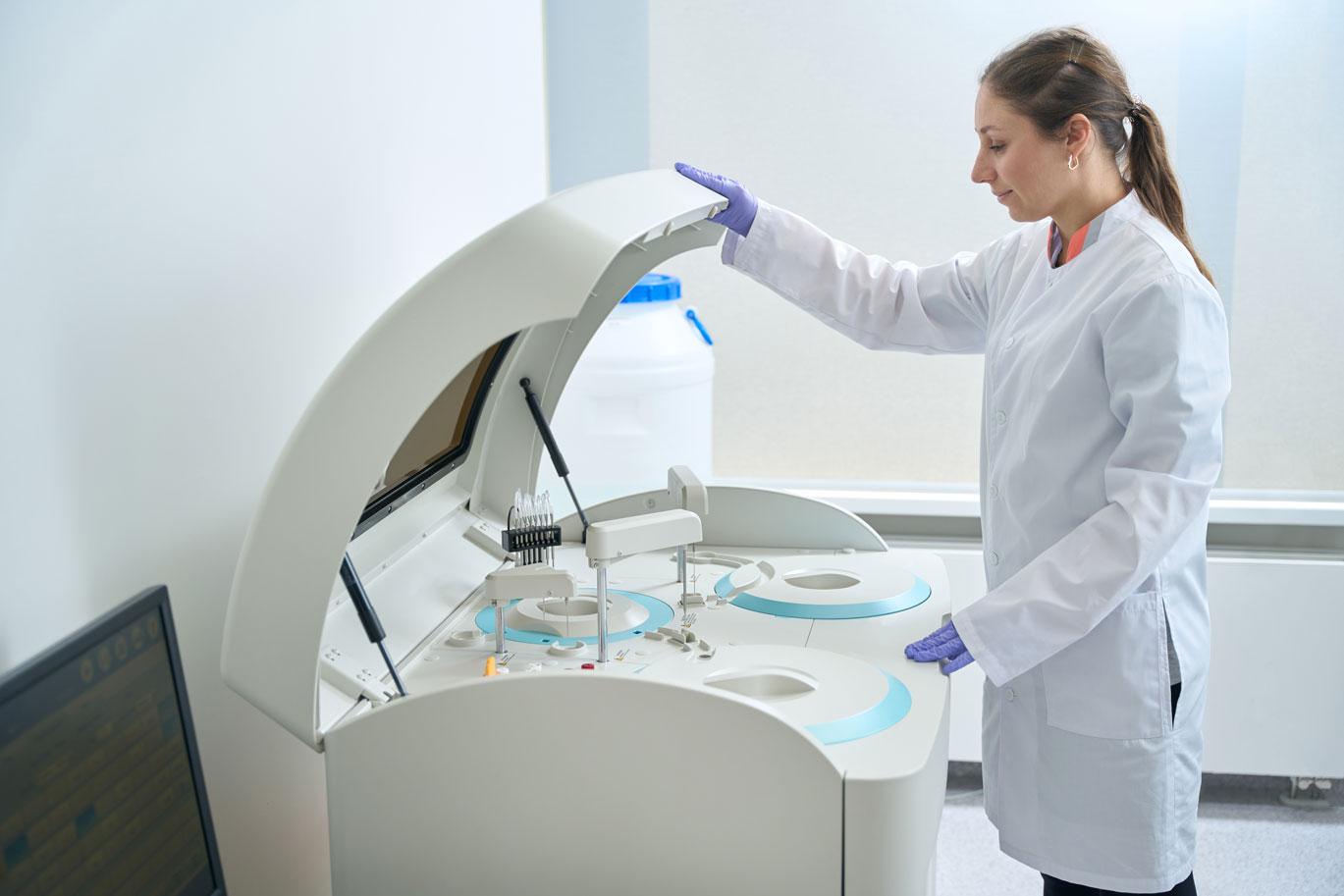Table of Contents
ToggleLiver cancer is a significant health concern in Singapore, and early detection is crucial for successful treatment. You may have even heard your doctor mention running a tumour markers test during discussions about your liver health.
These biochemical substances are found in the blood and provide important clues for doctors to make a diagnosis. In this blog, we’ll explain what are tumour markers, and how doctors use them for the screening and monitoring of liver cancer.
What are Liver Tumour Markers?
Liver tumour markers are substances in your blood that can be produced by cancer cells or by your body in response to the presence of cancer. They are biochemical clues that can provide important information to a doctor about what might be happening inside your liver.
A tumour markers test helps to measure the levels of these substances.
Key Liver Tumour Markers Explained (Layman's Terms)
While there are many different tumour markers, there are a few that your doctor will look out for that are closely related to liver cancer:
- Alpha-fetoprotein (AFP): One of the most widely used tumour markers for liver cancer, specifically Hepatocellular Carcinoma (HCC), which is the most prevalent type of liver cancer. In adults, elevated AFP levels can sometimes be seen in non-cancerous liver conditions like chronic hepatitis or cirrhosis (scarring of the liver), which is why it's never used as a standalone diagnostic tool.
- Des-gamma-carboxy prothrombin (DCP/PIVKA-II): This is another important liver tumour marker that doctors often use alongside AFP. DCP can be particularly helpful in detecting HCC even when AFP levels are normal, providing an additional layer of insight.
- Carcinoembryonic antigen (CEA): While primarily associated with other cancers, such as colorectal cancer, elevated CEA levels can sometimes be seen in liver cancer, especially if the cancer has spread from another part of the body to the liver. Because CEA can be elevated for various reasons, doctors always interpret its levels carefully, considering the full clinical picture.
How Doctors Use Tumour Markers to Screen for Early Signs of Liver Cancer
Finding liver cancer at an early stage before any symptoms appear, greatly improves the chances of successful treatment and better outcomes.
In Singapore, certain individuals are at a higher risk of developing liver cancer. Common risk factors include:
- Chronic Hepatitis B or C infections: These viral infections can lead to long-term liver inflammation and damage
- Liver cirrhosis: This is advanced scarring of the liver, which can sometimes be a result of chronic liver diseases.
- Non-alcoholic fatty liver disease (NAFLD/MASLD) with advanced fibrosis: This condition involves fat buildup in the liver and can progress to inflammation and scarring.<
For individuals with these high-risk factors, doctors regularly use blood tests to measure tumour markers like AFP. These blood tests can be conducted in combination with liver function tests or imaging scans like ultrasound for routine screening. Regular screening over a fixed duration, such as every six months, helps doctors to check for any early signs that might indicate the development of liver cancer.
How Tumour Markers Help Doctors to Make a Diagnosis
While tumour markers can be an indicator of liver cancer, a tumour marker test alone isn’t sufficient for a definitive diagnosis. Doctors always consider these results alongside other important information. When elevated levels of specific markers (like AFP or DCP) are detected, a liver cancer specialist considers these findings alongside other clinical information.
This includes a thorough review of the patient’s medical history, a physical examination, a biopsy, as well as other diagnostics tests such as imaging scans including ultrasound, CT scans, or MRI scans. Together, these provide crucial information to help the doctor determine if it is a benign tumour or a malignant tumour.
How Tumour Markers Help to Track Liver Cancer During and After Treatment
Once liver cancer is diagnosed, tumour markers become invaluable tools for monitoring the disease and the effectiveness of treatment.
- Tracking the Effectiveness of Treatment: Doctors regularly monitor tumour marker levels throughout the course of liver cancer treatment. A significant drop in the levels of these markers can be a very good indicator that the treatment is working and the cancer is responding.
- Detecting Recurrence: After successful treatment for liver cancer, regular monitoring of these tumour markers helps to detect any signs of the cancer returning (recurrence) at an early stage. 
- Assessing Prognosis: While not a primary use, changes in tumour marker levels over time can also provide doctors with additional information that helps them understand how the cancer might behave and predict prognosis, or the likely course of the disease.
Learn More About Liver Tumour Markers and Your Liver Health with Dr. Thng

In summary, liver tumour markers are powerful tools that assist doctors in detecting and monitoring liver cancer, especially for individuals who are at higher risk. They provide important biochemical clues that, when combined with other clinical information and imaging, help guide diagnosis, assess treatment effectiveness, and detect potential recurrence.
To learn more about tumour markers and how they relate to your liver health, we encourage you to visit our dedicated page on liver tumour markers. For a consultation on liver treatment in Singapore, contact us to book an appointment with Dr. Thng.
